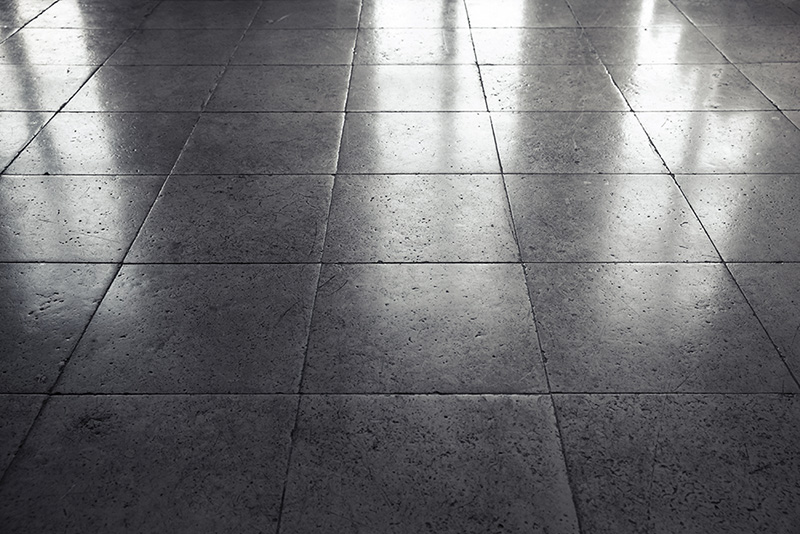One area of maintenance and cleaning that is often overlooked is working with stone flooring. Lucrative options as a project or a focus for a company to produce higher levels of sales are marble, travertine, and granite flooring.
Stone requires a bit more focus to begin to prepare a maintenance program for a customer or prospect. There are several questions that should be asked of any stone flooring to help assess how the cleaning or maintenance program will impact the stone, and if the outcome of the program will result in the look the customer is expecting.
The first question or assessment should be to determine if the stone is actually stone. There are many produced tiles that can be easily confused with natural stone because the manufacturing processes of ceramic, porcelain, and other clay based flooring products are made to mimic the look of natural stone. Therefore, if you just look at the flooring material, you could make a wrong decision on a maintenance protocol.
Each tile in a natural stone floor will be a one-of-a-kind product. The earth, which produces natural stone, does not have a manufacturing blueprint to create any one tile to be an exact replica of any other. In man-made tile flooring, each piece can be an exact replica of the tile next to it, or somewhere within the floor installation.
As each tile is produced in the factory, and it is stamped out from a mold. The similarity will be noticeable if you or your staff will take the time to look for it. Because of just how advanced the manufacturing techniques have become, you will have to view the flooring with a great attention to detail to make the natural vs man-made determination. This difference will be extremely important in the development of a maintenance program.
If the type of tile cannot be determined visually, there are several more diagnostic processes that can be used to help differentiate clay based from natural stone products. The reason it is vital to determine before the maintenance plan is developed and implemented is to minimize any adverse reaction from cleaning products that may be used.
It may be of importance to use some water to address the question of tile porosity. The ability of the pore or capillary area of the tile to accept moisture can help us determine if the amount of water mixed with our cleaning agent may affect our maintenance process by limiting the amount of square footage processed at one time. If the tile absorbs a lot of cleaning solution, the flooring may have an extended drying period, could cause the uplifting of additional minerals from below the tile surface, or could require more penetrating sealer than is anticipated, causing the profitability of the maintenance process to be affected.
Another area of concern is detergent sensitivity. Each and every type of cleaning product should be pre-tested on the tile and grouted surface before the maintenance plan is implemented. This process provides assurance that it is a proper product to be used in this environment and won’t cause any damage or disruption to the tile or stone surface. An example would be to not use any acidic product on a polished natural stone surface if that stone surface contained any calcium minerals. Acid products actually dissolve calcium, causing what is known as an “etch” in the stone surface.
The abrasion resistance of the tile or stone surface also needs to be determined. Just how aggressive we can be in the agitation process must be outlined before maintenance operations can begin. Using an object of known hardness, like a steel blade point or quartz point, can help us determine if the stone is capable, or worthwhile to accept an abrasive hone or polish necessary to remove the inevitable scratching by gritty debris brought in by foot traffic on the flooring. By using the abrasion resistance testing the time factor for the honing or polishing process can be addressed before beginning the procedure.
A thorough inspection of the floor is absolutely necessary and will prevent a multitude of problems. These assessments can be very useful in keeping our stone and tile maintenance operations profitable and free from worrying about potential damage caused by detergents or water.

